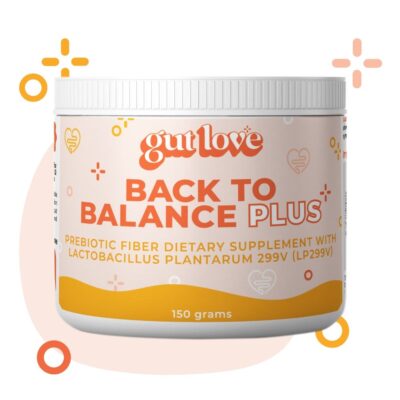I was first introduced to the matcha world when my sister moved to Japan for a year. I had tried it a few times at local coffee spots after hearing about all the matcha hype – but honestly – I wasn’t impressed.
Then I tried matcha again when I went to my first authentic Japanesse tea ceremony, ironically in an Airbnb on the gold coast in Australia. The host had a tea room in her house and I got to participate in the ceremony.
After the tea ceremony, I completely changed my mind about matcha. I loved it. The main difference for me was that I discovered how very different a good quality ceremonial matcha is. The taste, the calm focus, the moment – I loved it all.
The good thing is, you don’t have to travel all the way to Japan (or Australia in my case) or attend tea ceremonies to reap the benefits of a really good matcha.
In 2024 after 3 years of developing I came out with two products – back to balance plus and matcha. Our matcha is high quality and has a distinct creamy taste.
Is Matcha Good For You?
This is actually a question we get asked often. Maybe it’s because I’m always sharing about matcha or drinking matcha on our Gut Feelings podcast and on Instagram. Or maybe it’s just the hype around matcha in general!
I’m a big fan of matcha for several reasons. First off, it’s often less of a symptom trigger than coffee for many. It has less caffeine which can stimulate more movement in the bowels.
Matcha has many prebiotic qualities and is rich in antioxidants as well. Given that it’s in a drink form, it’s an easy way to ramp up your antioxidant intake.
We can dig deeper into the health benefits at the end of this article, but matcha is IBD friendly and friendly to our gut microbes.
What is Matcha?
Matcha is a finely ground powder derived from whole green tea leaves. Matcha is processed and picked differently than green tea which is what gives it it’s unique color and benefits.
It’s important to note there are distinct differences between culinary and ceremonial grade matchas. Culinary grade matcha is often used in coffee shops because it’s more cost effective than ceremonial grade varieties.
Ceremonial grade is picked earlier in the harvest period and will have a bright green emerald color and it tends to have higher antioxidants present as well. It also tends to taste better.
What is Matcha Made of?
Cultivated primarily in Japan, the green tea plant is shaded during the last few weeks before harvest, which enhances chlorophyll production and results in the bright green color of the leaves.
Once harvested, the leaves undergo a careful processing method: They are steamed, dried, and then stone-ground into a fine powder.
This process ensures that the final product maintains its nutritional value and antioxidants. What sets matcha apart from other types of tea is that the entire leaf is consumed as part of the beverage, rather than being steeped and removed.
As a result, matcha offers a more concentrated source of nutrients and a fuller flavor profile that balances sweetness, bitterness, and umami notes.
How much Caffeine is in Matcha?
Matcha contains caffeine, but the amount can vary depending on factors such as the quality, age, and preparation method of the tea. On average, a serving of matcha (1 gram or 1/2 teaspoon of matcha powder) contains around 35 mg of caffeine, which is roughly a third of the caffeine found in a cup of brewed coffee (about 95 mg per 8-ounce cup).
It’s important to note that matcha also contains a compound called L-theanine, which is known for its relaxing properties. This compound can help mitigate the effects of caffeine, providing a more balanced and sustained energy boost without the jittery side effects often associated with coffee.
For those sensitive to caffeine or looking to consume it in moderation, it may be helpful to start with small servings of matcha (1/2 teaspoon) and gradually adjust the amount according to personal tolerance and preference.
What does Matcha Taste Like?
Matcha has a unique and complex flavor profile that sets it apart from traditional green tea. Its taste can be described as earthy, slightly sweet, and savory, with a touch of bitterness that adds depth and balance.
What’s interesting about matcha is that the taste can vary based on the region it’s grown in and how it’s cultivated. Uji city in Kyoto is known to be the place for some of the best quality and best tasting matcha. In fact, this is where we source our gut love matcha!
The initial sip often reveals a subtle sweetness that can be attributed to the amino acid L-theanine and the shade-grown cultivation process. This sweetness is followed by a rich, grassy or vegetal flavor reminiscent of spinach or seaweed.
Some varieties taste creamy, others may taste a bit grassy. I can appreciate all varieties personally, but I gravitate towards a creamy variety for everyday drinking.
The bitterness in matcha is a natural component of tea and can be more pronounced in lower-quality or over-brewed matcha. When prepared properly, the bitterness should be mild and add complexity to the overall flavor.
Finally, matcha’s savory or umami notes contribute to its distinct taste, creating a lingering, satisfying finish. This umami flavor is often described as brothy, adding depth and richness to the tea.
In summary, matcha offers a harmonious blend of sweetness, bitterness, earthiness, and savory undertones that come together to create a unique and enjoyable taste experience.
Health Benefits of Matcha
Matcha has been found to provide multiple benefits for gut health, primarily due to its high concentration of antioxidants, particularly catechins. These compounds exhibit anti-inflammatory and antibacterial properties that can contribute to a healthy gut environment.
Matcha has prebiotic qualities
While most people wouldn’t think of matcha as a prebiotic, it does contain compounds that can promote the growth of beneficial gut bacteria, a key aspect of prebiotic activity. Prebiotics are substances that support the growth of healthy microorganisms in the gut, leading to an improved balance of gut flora and overall digestive health.
Matcha also contains polyphenols, specifically catechins, which possess antimicrobial properties that can help maintain a balanced gut microbiome. These compounds may inhibit the growth of harmful bacteria while promoting the growth of beneficial bacteria, such as Bifidobacteria and Lactobacilli, in the gut. In this sense, matcha can indirectly contribute to the prebiotic-like activity by supporting a healthier gut environment.
Matcha is rich in antioxidants
Green tea has been discussed in the research for it’s antioxidant content. Matcha actual has 137 times more antioxidants than that of green tea!
It’s known to have the antioxidant powerhouse compound called catechins. Catechins are a group of polyphenolic compounds found naturally in various plants, including tea (Camellia sinensis), cocoa, fruits, and vegetables.
These compounds belong to the larger family of flavonoids, which are known for their potent antioxidant properties. Catechins have been extensively studied due to their numerous health benefits.
There are four primary catechins present in matcha:
- Epigallocatechin gallate (EGCG): The most abundant and extensively studied catechin in tea, EGCG is known for its strong antioxidant activity and potential health benefits, such as reducing the risk of chronic diseases like IBD and certain types of cancer.
- Epigallocatechin (EGC): Another catechin found in tea, EGC has been shown to possess antioxidant and anti-inflammatory properties.
- Epicatechin gallate (ECG): ECG exhibits antioxidant, anti-inflammatory, and antibacterial activities, which may contribute to its potential health benefits.
- Epicatechin (EC): Like other catechins, EC has antioxidant properties and has been studied for its potential role in supporting heart health and blood vessel function.
Matcha contains L-theanine
L-theanine, an amino acid found in matcha is known to promote a sense of calmness. This has been known about matcha since it’s early use almost 1000 years ago. It’s historic use was to prepare for moments of decision making that required focus and calm.
We now know it’s the L-theanine at play which may increase alpha waves in your brain which is linked to mental relaxation and may help counteract stress.
Is coffee too high in caffeine for you? If you are someone who normally gets jitters with the caffeine content found in coffee, you may do better with matcha simply because the L-theanine also helps modify the effects of caffeine in your body.
L-theanine can also increase the number of mood supportive compounds in your brain, leading to improved mood, memory, and concentration. Some studies indicate that it may improve brain function and reduce age-related mental decline in older adults as well.
Matcha and Heart Health
Some research has suggested that drinking matcha or green tea may help protect against heart disease due to it’s rich antioxidants.
Green tea consumption overall is also linked with a lower risk of developing heart disease. Some studies also show that it may help lower the risk of high blood pressure too.
Are you a matcha fan? What type of green tea do you like? Let us know in the comments.
Blog notes:
Not sure how to prepare a good matcha? Check out our strawberry matcha here.
Recipe for a regular cup of matcha:
If you are just making a matcha latte, it generally calls for ½ tsp per serving. Add it to hot water and use a bamboo whisk or any whisk to mix it. Then add your milk of choice – it pairs well with soy milk.
Posts you might like:
References:
Green tea matcha antioxidant – details
Weiss, D.J.; Anderton, C.R. Determination of catechins in matcha green tea by micellar electrokinetic chromatography. J. Chromatogr. A 2003, 1011, 173–180. [Google Scholar] [CrossRef] [PubMed]
L-Theanine reducing stress and anxiety – details
Nathan PJ, Lu K, Gray M, Oliver C. The neuropharmacology of L-theanine(N-ethyl-L-glutamine): a possible neuroprotective and cognitive enhancing agent. J Herb Pharmacother. 2006;6(2):21-30. PMID: 17182482.
Williams, J., Kellett, J., Roach, P. D., McKune, A., Mellor, D., Thomas, J., & Naumovski, N. (2016). l-Theanine as a Functional Food Additive: Its Role in Disease Prevention and Health Promotion. Beverages, 2(2), 13. https://doi.org/10.3390/beverages2020013
Hidese S, Ogawa S, Ota M, Ishida I, Yasukawa Z, Ozeki M, Kunugi H. Effects of L-Theanine Administration on Stress-Related Symptoms and Cognitive Functions in Healthy Adults: A Randomized Controlled Trial. Nutrients. 2019 Oct 3;11(10):2362. doi: 10.3390/nu11102362. PMID: 31623400; PMCID: PMC6836118.
Dodd FL, Kennedy DO, Riby LM, Haskell-Ramsay CF. A double-blind, placebo-controlled study evaluating the effects of caffeine and L-theanine both alone and in combination on cerebral blood flow, cognition and mood. Psychopharmacology (Berl). 2015 Jul;232(14):2563-76. doi: 10.1007/s00213-015-3895-0. Epub 2015 Mar 13. PMID: 25761837; PMCID: PMC4480845.
Sakurai K, Shen C, Ezaki Y, Inamura N, Fukushima Y, Masuoka N, Hisatsune T. Effects of Matcha Green Tea Powder on Cognitive Functions of Community-Dwelling Elderly Individuals. Nutrients. 2020 Nov 26;12(12):3639. doi: 10.3390/nu12123639. PMID: 33256220; PMCID: PMC7760932.







Hi
Do you have back to balance in stock?
Thanks
It will be in at the end of the month – it’s got to go to third party testing first. You can reach out to su*****@*****ve.us if you’d like more updates!